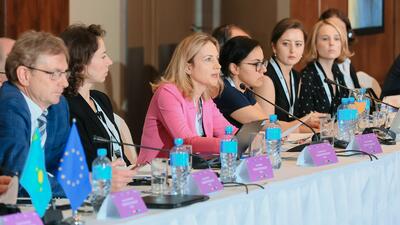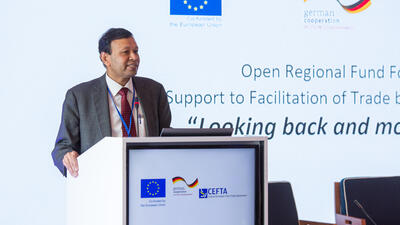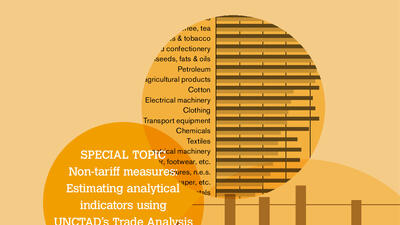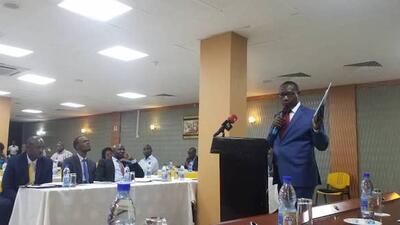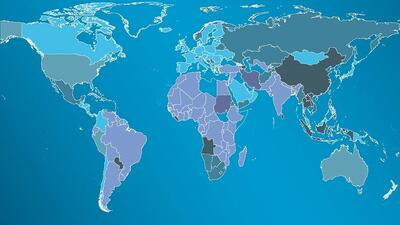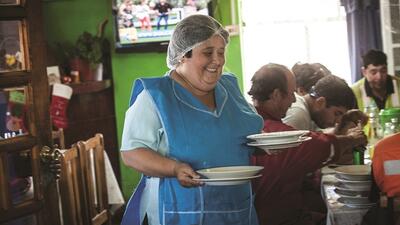
Les petites entreprises et l'énergie: surmonter les difficultés
Energy management and efficiency is not just for big companies. Small and medium-sized enterprises (SMEs) can also achieve considerable savings through such programmes. Smaller buildings consume almost half of overall energy use and have the potential to save approximately US$30 billion annually, the U.S. Department
of Energy has said. Since the opportunities for energy, environmental and operational savings are so great, it is no longer a question of whether a business can afford to upgrade but whether it can afford not to.
Liam McLaughlin, a leading expert in the subject of small businesses and principal author
of the ISO/ITC/UNIDO handbook ‘ISO 50001 – A practical guide for SMEs,’ explains why tailored advice for SMEs will help them cut costs, become less impacted by future variations in energy prices and make their business more sustainable in the long term.
Trade Forum: What are some of the energy challenges SMEs face today?
Are there any misconceptions?
Liam McLaughlin: With pressures on to remain competitive and reduce costs, SMEs
– like most companies – are looking for ways to become leaner and meaner with their energy use.
Here’s the thing. SMEs may think that energy management and energy efficiency
are for big businesses with lots of extra resources/money to invest, as well as the technical know-how to reduce energy cost.
This, however, is not the case. In reality few organizations naturally have the necessary technical expertise in that area. What’s more, it is often easier for SMEs to implement these principles than larger organizations.
This is because a small business usually has fewer layers of management and therefore less bureaucracy, making it simpler and faster to make changes and improvements.
TF: Why is targeted advice for SMEs important?
LM: It is important for SMEs to realize the potential of energy savings and other benefits. They frequently do not know where or how to begin [and are] often steered by advice rather than by the best financial return in terms of cost and benefit. This is where targeted advice enables them to develop a better understanding of where energy is being used in the organization and how savings
can be made.
TF: What do we need to know about SMEs?
LM: SMEs may have a perception that improved energy efficiency involves compromising other areas such as safety, productivity, comfort or quality. This needn’t be so, particularly if a practical and sensible approach is taken.
International research, not to mention my own experience, has shown that there
are non-energy benefits in addition to cost savings through improved operation and
control of energy using dedicated systems. These non-energy benefits include enhanced comfort, increased productivity and quality, and reduced maintenance costs, just to name a few. They result from an improved understanding of how equipment and systems work.
TF: Any tips to SMEs?
LM: There are plenty, but I will focus my advice on two areas: management and technical.
Management ideas:
- Be open to changes in work practices.
- Get support from top management.
- Assign clear roles and responsibilities for those involved.
Technical ideas:
- Understand where and why you use energy.
- Understand how your energy consumption varies. Does it vary from day to day or week to week? Why? Or, more importantly, why not?
- Measure and work out your baseload. This means understanding why you use energy when there is little or no activity in your company, i.e. at night or at weekends or during periods of no production. This can be measured by taking manual readings of your electricity and fuel meters.
- Keep metrics and reports as simple as possible.




